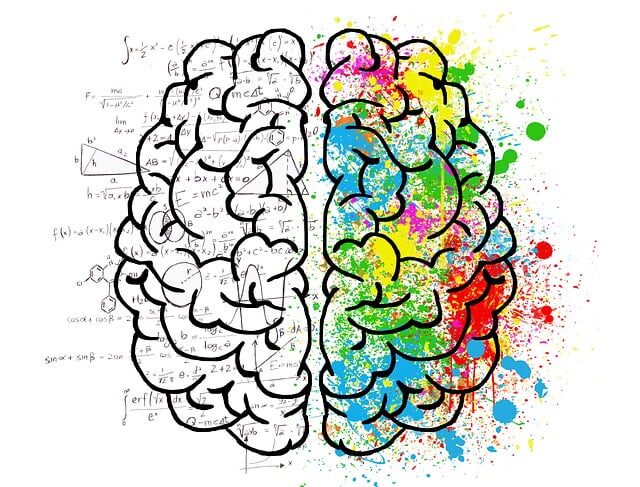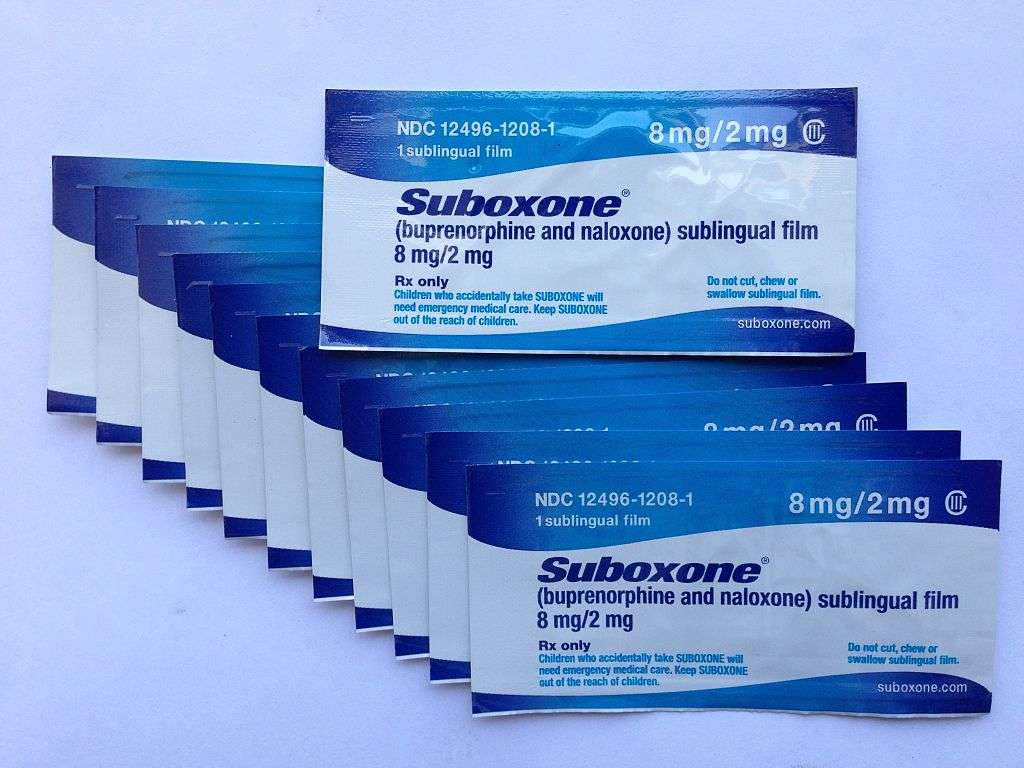Suboxone has been a revolutionary medication that has become a cornerstone of recovery programs worldwide, offering new hope to individuals battling opioid addiction. However, like any powerful tool, it must be thoroughly understood to be effectively used.
Suboxone, a combination of buprenorphine and naloxone, is primarily used in treating opioid addiction. But it’s not just about curbing physical cravings; there’s a psychological aspect involved, too. We must not forget the mind when treating the body, for they are inextricably linked, a fundamental truth within the addiction treatment field.
But how does Suboxone affect your mood? That’s the million-dollar question. While the drug is undeniably beneficial, it can, like many medications, impact our emotions and psychological well-being. Given the personal and societal cost of addiction, we must explore these emotional and psychological effects in-depth. Because understanding Suboxone isn’t merely an intellectual exercise—it could be a life-changing, or even life-saving, endeavor.
So let’s embark on this journey of understanding together. With the right information, we can empower ourselves and our loved ones during the addiction recovery process.


What is Suboxone?
Suboxone, in its essence, is a prescription medication used predominantly in the treatment of opioid addiction. It’s the knight in shining armor for many individuals entangled in the life-altering consequences of opioid abuse. But how does it play such a heroic role? The answer lies in its ingredients.
This unique medication combines two active ingredients: Buprenorphine and Naloxone. The true star of the show, however, is Buprenorphine. This partial opioid agonist delivers a lower opioid dose to a patient, which can help curb cravings and withdrawal symptoms without the high or harmful side effects associated with opioid misuse. It’s like providing a safety net in the treacherous journey towards recovery.
But Suboxone doesn’t work alone. Paired with Naloxone—an opioid antagonist—it helps reduce the potential for misuse. When Suboxone is taken as prescribed, Naloxone has no effect. However, if someone tries to misuse Suboxone by injecting it, Naloxone will induce withdrawal symptoms, adding a layer of protection against abuse.
In the world of addiction treatment, Suboxone plays a dual role. It offers an immediate lifeline during the detox phase, helping individuals to manage withdrawal symptoms more effectively. Moreover, it continues to support patients throughout their recovery journey, preventing relapse and aiding long-term treatment goals.
Suboxone and Its Mood Effects
Now that we’ve established what Suboxone is and its role in addiction treatment, it’s time to turn our attention to its effects on our mood. This aspect is crucial because the emotional journey in addiction recovery is as significant as the physical one.
Overview of Mood Effects
When taking Suboxone, patients may notice certain changes in their mood, the most notable of which can be mood swings. Yes, you heard it right. That roller-coaster ride of emotions isn’t exclusive to hormonal fluctuations or bad days at work; it can also be linked to the use of Suboxone.
Mood swings can be described as rapid and extreme changes in one’s emotions, oscillating between feelings of happiness, sadness, irritability, and even anger. As you can imagine, these sudden emotional shifts can be quite challenging, especially when you’re already walking the demanding path of addiction recovery.
While Suboxone can be an ally in managing opioid addiction, it can sometimes contribute to these mood swings. Suboxone influences the same areas of the brain affected by opioids, and while it’s designed to reduce cravings and withdrawal symptoms, it can sometimes tip the emotional scales, leading to unexpected mood swings. It’s crucial to be aware of this possibility, to better understand and manage your emotional health during the recovery process.
Antidepressant-Like and Anxiolytic-Like Effects
However, it’s not all a bumpy ride. Alongside potential mood swings, Suboxone also has antidepressant-like and anxiolytic-like effects. In simple terms, it can help ease symptoms of depression and anxiety—common co-occurring conditions with substance abuse.
The antidepressant-like effects of Suboxone can help alleviate feelings of sadness, hopelessness, or loss of interest that often accompany opioid withdrawal. At the same time, its anxiolytic-like effects work to reduce feelings of anxiety and restlessness, contributing to a calmer state of mind.
It’s worth mentioning that these effects are often most noticeable during the early stages of recovery when depression and anxiety tend to peak. Over time, as the brain recovers and readjusts, these effects may become less pronounced.
The effects of Suboxone on mood are indeed a mixed bag—while it can lead to mood swings, it can also provide much-needed relief from depressive and anxious symptoms. Being aware of these potential effects can arm you with the knowledge you need to better manage your emotional health during your recovery journey.


Side Effects of Suboxone
As we delve deeper into understanding Suboxone’s influence on our mood, it’s imperative to discuss the potential side effects, both physical and emotional, that can accompany its use. These side effects can play a pivotal role in the emotional journey of an individual on the path to recovery.
H3: Physical Side Effects
Detoxification, or detox, is the process of removing harmful substances from the body. In the context of opioid addiction, Suboxone is a critical player during detox, as it helps to manage withdrawal symptoms. However, like many medications, it can bring along a few unwanted passengers—physical side effects.
Common physical side effects of Suboxone:
- Nausea
- Vomiting
- Constipation
- Headaches
- Sweating
- Sleep disturbances
- Decrease in appetite
Although these are generally less severe than opioid withdrawal symptoms, they can still be uncomfortable and potentially impact one’s emotional well-being. While physical side effects can seem daunting, remember that they are not a definitive part of everyone’s Suboxone journey. Everyone is unique, and so is their body’s response to medication. Healthcare professionals closely monitor these effects and can adjust treatment plans as necessary to ensure your physical health remains on track during recovery.
Emotional and Mental Side Effects
Suboxone’s effects aren’t confined to the physical realm; they extend into the mental and emotional spheres as well. As discussed earlier, Suboxone can lead to mood swings and alter emotional states, but it’s essential to understand the full extent of these effects.
Suboxone can sometimes lead to feelings of depression or a generally depressed mood. Individuals might feel a persistent sense of sadness, loss of interest in activities they once enjoyed, or a feeling of hopelessness. These emotions can be quite challenging to handle, particularly in the midst of recovery.
However, it’s vital to remember that these emotional side effects aren’t a sign of personal weakness or a character flaw. They’re a response to the changes your brain is undergoing during the recovery process. Knowledge is power, and understanding these potential emotional side effects can help you prepare and navigate your journey more effectively.
It’s worth noting that the mental health impact isn’t all gloomy—Suboxone can also help to reduce anxiety and alleviate depressive symptoms, as mentioned earlier.
Suboxone can have a variety of effects on your mood and mental health, ranging from mood swings to relief from depression and anxiety. By staying informed and connected with your healthcare provider, you can make sure that your path to recovery is a journey towards improved health—both physical and emotional.
Suboxone in the Addiction Treatment Process
The path to recovery from addiction is rarely a straightforward journey. It is often laden with challenges that require robust support systems, and this is where the role of effective treatment methodologies, such as the use of Suboxone, comes into play. To fully understand how Suboxone affects your mood, it is crucial to examine its position within the broader context of addiction treatment.
Suboxone as a Medication in Addiction Recovery
Suboxone has emerged as a cornerstone in the fight against opioid addiction. In many treatment programs, it plays an integral part in the detox process, aiding in managing withdrawal symptoms. When an individual stops or reduces opioid use abruptly, the body often reacts with a constellation of symptoms known as withdrawal. Suboxone, with its active ingredient buprenorphine, works by activating the same receptors in the brain that opioids do, albeit to a lesser degree. This action helps to alleviate the discomfort of withdrawal symptoms while reducing cravings for opioids.
As a part of addiction recovery, Suboxone serves a dual purpose. While it minimizes withdrawal symptoms, it also contributes to mood stabilization. By mitigating the physiological distress associated with withdrawal, patients are often better able to manage their emotional states and mood swings.
Addiction Treatment Programs and Suboxone
Suboxone’s benefits extend across various addiction treatment programs, each one uniquely tailored to the needs of the patient. In outpatient services, for example, Suboxone can be administered under the guidance of healthcare professionals while the patient continues with their daily life activities. This flexibility makes it a preferred choice for those who wish to pursue treatment without disrupting their regular schedule.
Suboxone also plays a crucial role in residential or inpatient rehab programs. Here, it assists in the initial detox phase and can be part of a maintenance program, aiding individuals in managing their recovery in a controlled, supportive environment.
Moreover, Suboxone’s use extends to partial hospitalization programs (PHPs) and intensive outpatient programs (IOPs), offering an intermediate level of care between outpatient and inpatient services. The versatile use of Suboxone across different treatment programs underlines its significance in the addiction recovery landscape.
Suboxone is an invaluable tool in the arsenal of addiction treatment. Its role in managing withdrawal symptoms and its use across various treatment programs illustrate its importance. Remember, it is not just a medication; for many, it is a beacon of hope on their journey towards recovery.
Wrapping Up: The Mood Effects of Suboxone


It has become clear that the emotional and psychological impacts of this medication are as important as its physical effects. Suboxone, with its primary role in addiction treatment, profoundly influences mood, contributing to emotional stability while managing withdrawal symptoms. It is crucial, however, to remember that its mood-related effects can be a double-edged sword, causing mood swings and altering emotional states in some individuals.
While Suboxone plays a significant role in assisting individuals on their road to recovery, understanding its varied impacts, including its effect on mood, is key. It helps in setting realistic expectations and better managing the recovery process. Knowledge about the potential side effects, both physical and emotional, allows individuals to navigate their journey with informed confidence.
Yet, as with any treatment, individual responses to Suboxone can vary widely. While it can be a beacon of hope for some, others may experience significant side effects. Therefore, it is crucial to seek personalized advice from an addiction professional. They can provide tailored treatment options and strategies, taking into account the specific needs and responses of the individual.
Remember, there’s no one-size-fits-all solution in addiction treatment, and Suboxone is just one tool in a broader arsenal. In the quest for recovery, understanding is your greatest ally. From learning about the effects of Suboxone on mood to exploring different treatment options, knowledge paves the way for empowered decisions. So, keep learning, keep exploring, and remember, help is always available—you need only reach out.
Reach out to us here for your Suboxone treatment!
Sources:
https://mentalhealthmatch.com/articles/health/how-suboxone-impacts-mental-health-and-personality
https://www.ncbi.nlm.nih.gov/pmc/articles/PMC3706486/
https://www.mypinnaclehealthcare.com/blog/suboxone-effects-mental-behavior
https://genesishouse.net/blog/does-suboxone-cause-or-affect-mood-swings/













